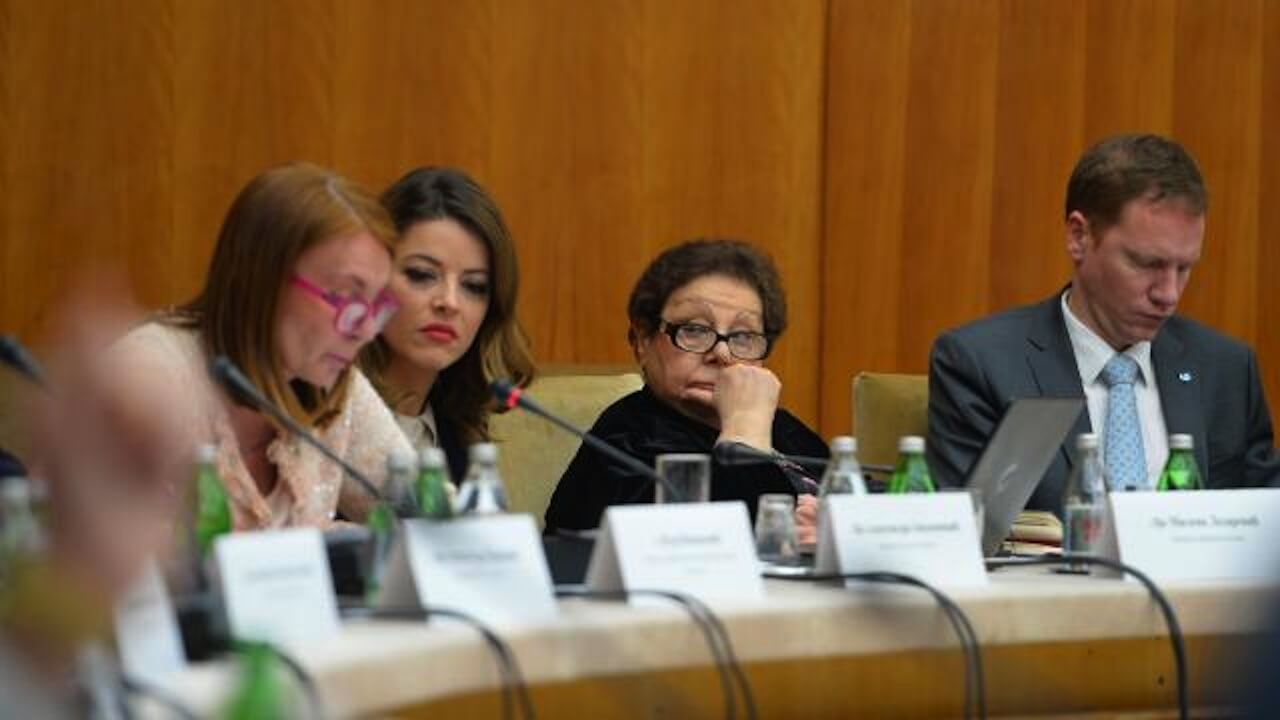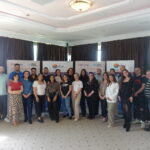No society can function or retain normalcy without dialogue. Public debate and dialogue generate ideas and solutions for the problems society is facing. Absence of dialogue leads to closure of the entire society and individual groups within it; growing distrust, but above all in its own ability to overcome problems, especially those most difficult on which its future depends.
What has been achieved by the internal dialogue so far?
Finally, a dialogue has started on one of the most difficult problem/situation that our society and our state are facing, and with which we have been living for decades. In recent years, discussions about untying the ”Kosovo knot” have been pushed under the carpet, and if they were held, that was happening only in narrow circles.
Such approach leads to the destruction of the whole society, and unhealthy society generates fears of all others, mistrust in itself – and in the end it leads to destruction and self-destruction. (I think it is necessary here to remind ourselves again of the books of Erich Fromm, ”The Sane Society” and ”The Anatomy of Human Destructiveness”.)
It is not true that there was no readiness or opportunity for this type of debate. From 2012, Belgrade Security Forum has been organizing debates on various topics important for Serbia-Kosovo relations in cooperation with the Centre for Inclusive Governance (CIG). In the first place these were closed sessions, and then we have opened them for the media. It turned out that interest is great, and that these topics are possible and absolutely need to be considered in the middle of Belgrade.
Internal dialogue, regardless of shortcomings, has opened a wide range of new issues and approaches to problems, as well as possible solutions – including media coverage, such as – ”Views” section of the daily newspapers ”Politika”, ”Danas”, ”Blic”, weekly newspapers, and even in the new media and social networks. These latter have showed, probably much more than the organized meetings, what people think about relations between two societies. It also became clear that citizens are poorly informed, often attached to emotions, rather than rational arguments, which is understandable and human, but is not a good guide for finding wise and sustainable solutions.
It turned out that dialogue needs to be well structured, that people have to communicate within individual, but different professional, interest and political groups, in order to turn it into a real conversation instead of a series of monologues.
What should we do next?
- Internal dialogue must continue, but as a real introduction to the dialogue between two societies – Serbian and Kosovo, Serbs and Albanians. This dialogue has to be well prepared and guided, carefully structured and must include most diverse groups within society – from scientists to entrepreneurs, from doctors to journalists. It is therefore extremely important that people, who meet recognize similar or common problems and interests. This has already been confirmed in the cooperation between the two Chambers of Commerce, and just a day before our conversation, a successful fair was held in Valjevo, where women entrepreneurs from Kosovo also took part. These days, unfortunately, initiatives that are bringing together Serbs and Albanians from Kosovo and Serbia are much less common than it was before. I remind that for many years this dialogue between two societies was maintained, above all, by civil society organizations, a number of media and artists.
- The dialogue between two societies should be focused on solving the current problems in order to build a different future. But the dialogue will primarily serve for building a mutual trust.
- It is necessary to provide good and in due course reporting on this dialogue in order to reduce space for manipulation and ”hunt in the blur” of all those who don’t care about true cooperation and full normalization of relations.
I am deeply convinced that only involvement of both societies in the dialogue can ensure success of both the Brussels Agreement and the future agreements, make achieved solutions sustainable, and ensure that both societies be more resilient to all negative challenges. Today, from us depend much more than we think – if we don’t use this moment, history will remember us as losers, like those who squandered our future.
These remarks were presented by Sonja on 31 March, 2018 in the first panel of the internal dialogue, in the organization of National Convention on the European Union.













